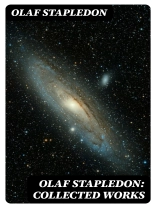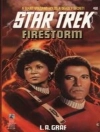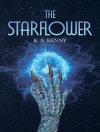In ‘Olaf Stapledon: Collected Works, ‘ readers are invited into the expansive realms of Stapledon’s visionary imagination, encompassing his groundbreaking science fiction narratives that profoundly influenced the genre. This anthology reveals the intricate interplay of philosophical ideas and poetic prose that characterize his work, addressing themes of humanity, evolution, and the cosmos. Notably, his seminal texts, such as ‘Last and First Men’ and ‘Star Maker, ‘ present speculative histories and explorations of the universe that challenge the reader’s perception of existence and time, all while utilizing an innovative narrative style that merges philosophical discourse with rich, imaginative storytelling. Olaf Stapledon, a British philosopher and writer born in 1886, was profoundly influenced by his academic background in philosophy and literature, as well as the social turmoil of his time. His experiences during World War I deeply shaped his worldview, prompting him to grapple with the potential and perils of human progress. This existential contemplation is vividly reflected in his works, providing a unique fusion of science fiction and philosophical inquiry that transcends conventional storytelling. For readers seeking to explore the boundaries of human thought and the universe, ‘Olaf Stapledon: Collected Works’ is essential. This compendium not only showcases Stapledon’s imaginative genius but also invites critical reflection on humanity’s place in the cosmos, making it a vital addition to the library of any serious reader of speculative fiction.
Over de auteur
William Olaf Stapledon (1886–1950), an early forbearer of what would become the genre of science fiction, was an English writer, philosopher, and visionary noted for his speculative fiction and pioneering ideas that stretched far beyond the literary conventions of his time. His career was defined by a small but influential body of work that deeply contemplated themes of cosmic scale, the future of humanity, and the ethics of evolution. His most enduring novels include ‘Last and First Men’ (1930) and ‘Star Maker’ (1937), which explore vast aeons of time and the ultimate fate of the universe. ‘Odd John’ (1935) analyzes the predicament of the superhuman, while ‘Sirius’ (1944) tackles the subject of enhanced animal intelligence. These novels were collected in ‘Olaf Stapledon: Collected Works’, attesting to the scope and depth of his imagination. Stapledon’s influence can be seen in the work of later science fiction authors like Arthur C. Clarke and Stanisław Lem, and his commitment to exploring philosophical questions has ensured that his work remains relevant to discussions of transhumanism and posthumanism within literary and academic circles. His literary style, characterized by sweeping narrative brushstrokes and a profound sense of ethical inquiry, maintains his reputation as a respected figure in the annals of science fiction literature.












